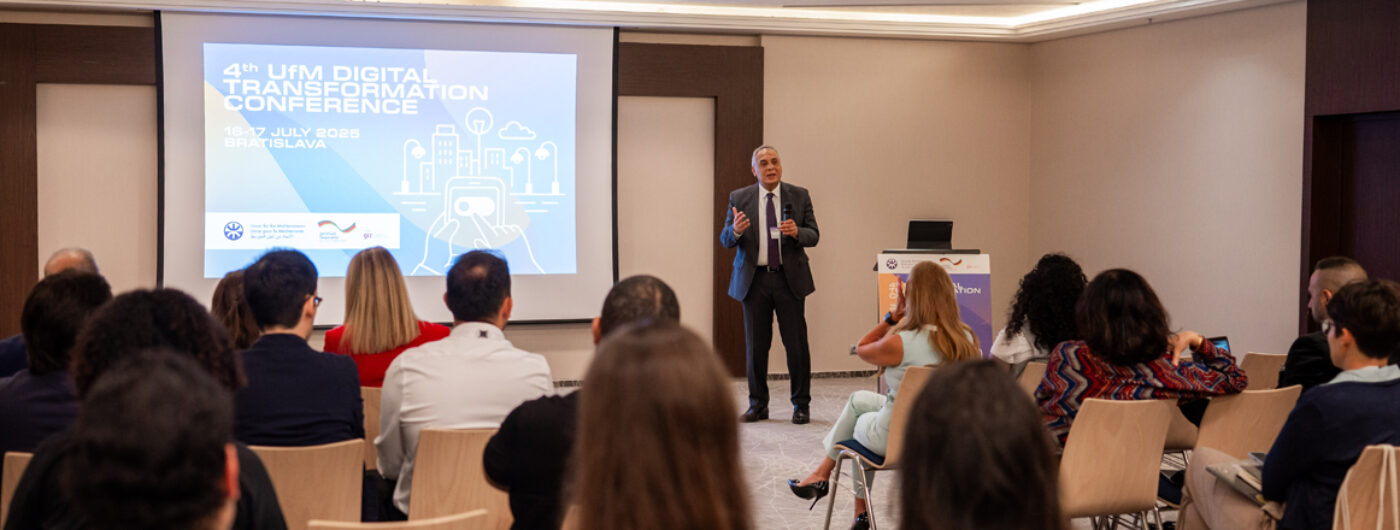
Towards just and inclusive digital transformation: Digital skills, rights and principles at the heart of a UfM Conference in Bratislava
- Bratislava saw the first UfM activity to be held in Slovakia, bringing together 50+ digital experts and actors from both shores of the Euro-Mediterranean Region to discuss digital skills, digital rights, and the role of cities in promoting digital transformation.
- The Conference introduced the participants to the initiatives underway by Digital Coalition Slovakia and gave the floor to participants to share best practices and success stories involving the Private Sector from Albania, Egypt, Estonia, Lebanon, Morocco, Tunisia, Spain, and other UfM countries.
16-17 July 2025, Bratislava – This year’s edition of the UfM Digital Transformation Conference, co-organised with the German Development Cooperation and supported by the European Commission (DG EMPL), focused on the opportunities, challenges and best practices associated with three interlinked facets of digital transition, namely skills and job creation, rights and principles, as well as the role of cities in promoting digital transformation in a just and inclusive way. It benefitted from the expertise of the Slovak Ministry of Education and the Digital Coalition of Slovakia.
The Conference brought together over 50 participants including a broad spectrum of high-level speakers, partners and stakeholders from different sectors of the Euro-Mediterranean region. They were engaged in three fit-for-purpose panels that combined interventions with elements of gamification to engage the participants in focused group discussions with a view to compiling insights and recommendations upon which they converge.
During the Opening Remarks, Vojtech Przybyla (Chief State Counsellor at the Ministry of Education, Research, Development and Youth of the Slovak Republic) took stock of the current efforts underway in Slovakia. For his part, Khaled El Attar (Former Vice Minister for Digital Transformation, Automation and Administrative Development of Egypt) stressed the need for the right data in order to inspire the right policies and highlighted the role of cities as digital transformation catalysts. This was followed by a scene setter presenting the current macroeconomic realities associated with the field by Anas Al Natsheh (Kajaani University of Applied Sciences) and Alessandro Brolpito (European Training Foundation).
Several representatives of Governments, private sector entities, Academia and young entrepreneurs took the floor to share best practices that inspired synergy-building during the networking event held on the second day of the Conference, fully dedicated to exchanging views and seeking meaningful complementarities. The key takeaways from the Conference will inform future UfM activities and will be reflected in an official Outcome Document.


